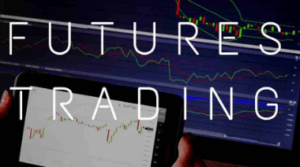A Futures Market is also known as a futures exchange. It is a central financial exchange. Where people can trade futures contracts. That are defined by the exchange. The futures market. Offers physical or electronic trading venues. details of standardized contracts. Market and price data, clearinghouses.
Exchange self-regulations margin mechanisms. Settlement procedures Delivery times, delivery procedures. As well as other services. In fostering trading in futures contracts. Futures contracts act as derivatives contracts. In buying or selling quantities of a commodity. Or financial instrument at a set price with delivery. set at a specified time in the future. This can be organized as non-profit member-owned organizations. Or as for-profit organizations and the futures market can also be integrated. Under the same brand name or organization. With other types of exchanges, like stock markets, options markets, and bond markets. When it comes to benefiting their members. The non-profit futures market benefits its members. Who earn commissions and revenue acting as brokers or market makers. While for-profit futures exchange earns most of their revenue. From trading and clearing fees.

Major Futures Markets
Large futures markets operate their own clearinghouses, where they have the leverage of making revenue from the trading itself, and from the processing of trades after the fact. Most of the futures market is registered with the Commodity Futures Trading Commission (CFTC), which is the main body who is in charge of regulating the futures markets. Exchanges, on the other hand, are usually regulated by the national body in the country in which they are situated.
Basics of a Futures Market
To fully know what a futures market is, it is good to know the basics of futures contracts. As well as the assets that are traded in these markets.
Futures Contracts
Firstly, The futures contracts act as derivatives contracts. In buying or selling quantities of a commodity or financial instrument. At a set price with delivery. set at a specified time in the future. They are made in an attempt by producers and suppliers of commodities. In a bid to avoid market volatility. Now, these producers and suppliers negotiate contracts. With an investor who agrees to take on both the risk. As well as the reward of a volatile market.
Futures contracts can either be made or created. As long as open interest is increased. Unlike other securities that are issued. The size of futures markets. Which mostly increases when the stock market outlook is uncertain. Is larger than that of Commodity markets. And are a vital part of the money system.
Futures Markets or Futures Exchanges
Usually, a futures market or futures exchange. Is where these financial products are bought. And sold for delivery at an agreed-upon date in the future. With a price that is fixed. At the time of the deal. Futures markets are beneficial. For more than simply agricultural contracts. And involves the buying, selling, and hedging of products. As well as future values of interest rates. Unlike most stock markets. Futures markets can be traded 24 hours a day. And currently, the majority of trading of futures markets takes place electronically.
Social Media: Facebook, Twitter, Wikipedia, LinkedIn, Pinterest
from WordPress https://ift.tt/3oTBql4
No comments:
Post a Comment